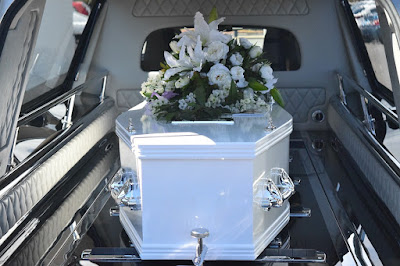However, there is one big reason why families may want to have this difficult conversation: Money.
Dying in New Zealand is costly
The FDANZ states that the cost of a funeral can be between $4000 and $15,000. The final bill can be much higher, depending on factors such as choosing burial over cremation, cemetery fees charged by your local council, or selecting a high end coffin.Given the unpredictability and urgency of death, more and more Kiwis are likely to struggle to pay for a loved one’s funeral due to a lack of planning. Work and Income offers a $2000 funeral grant to qualifying NZ residents, however it far from covers the costs of most arrangements. Furthermore, a study from Victoria University in 2017 found that 60 per cent of Kiwis have less than $10,000 in savings and few liquid assets. Even with government assistance, families may find themselves out of pocket or even pushed into debt after a loved one passes.
Making and sharing your plan
Having a plan and discussing it with your family may be difficult, but it could save them financial stress during the grieving period.A funeral insurance policy can be an affordable way to pay for your own funeral. The policy benefit is paid quickly, to help with the immediacy of funeral planning. It’s also more flexible than pre-paid funeral plans or funeral bonds, which often require customers to make decisions about their service when purchasing. Your family can also use the funeral insurance benefit to pay for other household expenses or settle final debts, where other pre-payment options must be used for funeral arrangements only.
Be sure that your family is aware of any funeral insurance policy or other means of payment you’ve organised. It may be wise to provide a copy of any relevant documents to a trusted family member or friend for safe keeping. This will help eliminate some of the confusion and possible financial worry when the time comes.
It may also be a good idea to write down and discuss any preferences you have for the service. What you like and what your family thinks you like may be vastly different. With all options available to family’s planning a funeral, it’s easy to become overwhelmed. Your loved ones could end up spending far more than is necessary, simply because they think that’s what you would have wanted.
How to talk to your family
Even with a plan, it can be tough to discuss funeral wishes and arrangements with your loved ones. They may be hesitant or refuse to have the conversation.If you’re unsure how they might react, approaching one or two family members at a time in an indirect manner may work best. Ask if they’ve ever thought about what their funeral might look like, and use this as an opening to discuss your own wishes. Talk about why making a plan is important to you, letting your loved ones know about your financial concerns and any steps you’re taking to remove some of this burden from them.
It may take several attempts to discuss your funeral plans and wishes with your family. End of life issues are among the most personal and emotional, but it’s important to keep trying. Considering the financial impact your death could have on them, your family may warm to the idea of making a plan for themselves.

0 comments:
Post a Comment